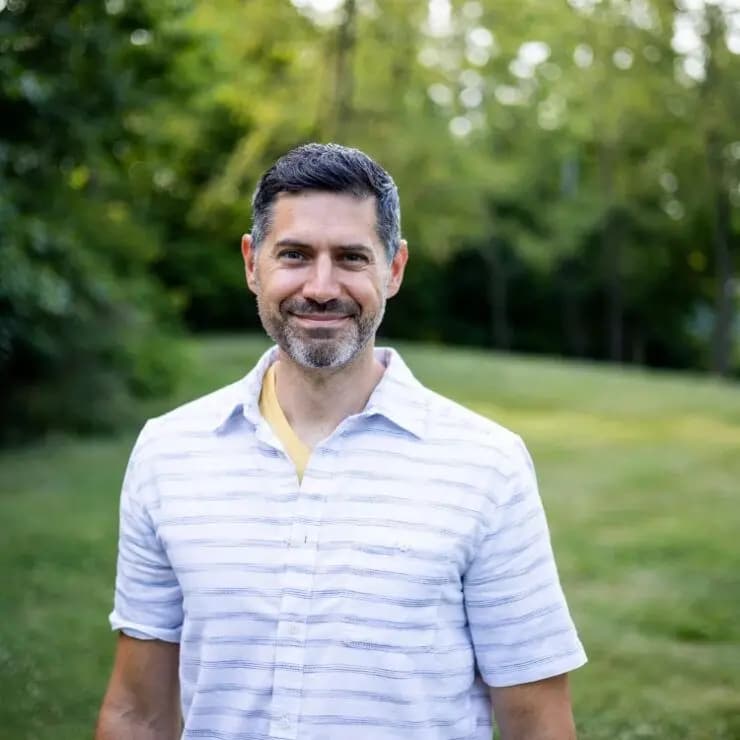Dear Pastor Mike, why can’t people have deep, meaningful conversations anymore?
Dear Pastor Mike,
I’m getting older, and it feels like we’re losing the art of having deep, meaningful conversations. I especially feel this with my extended family and at work. Even the slightest whiff of controversy can leave everyone on edge, as if we’re all tiptoeing around a sleeping giant. I’m curious what you think about this.
Answer: (I’m adding footnotes to this one! Lol...)
You’re not alone in feeling that tension. Many sense the walls closing in on peaceful dialogue. But why do our conversations slip into chaos so easily, and how can we find a better way forward? I have a few thoughts…
What Happened to the Middle Ground?
I once read a book called Crucial Conversations, which explains how our bodies and minds can slide into a fight-or-flight response when emotions rise too high.[1] In those moments, every subtle shade of conversational gray fades away, leaving only stark black and white. Instead of calm dialogue, we’re stuck in a kind of tug-of-war, each side convinced giving any ground at all will bring harm. As soon as we feel threatened, we lose sight of the nuances.
An example: Consider the heated debates about diversity, equity, and inclusion. In calm moments, most of us (especially Christians) agree that every human being bears God’s image and deserves dignity. At the same time, certain roles—like a surgeon—require unique skill and training, or conversely criminals should not be allowed total freedom to do what they want.
However…
When fear takes the spotlight, these reasonable truths blur. One side panics over losing human dignity and demands almost no standards or restrictions at all. The other side rightly fears incompetence or imminent danger and forgets compassion. Before long, we’re no longer talking to each other—we’re shouting past each other at the exaggerated straw-men we have built. The same pattern unfolds with immigration, voting laws, or any other hot topic. Fear narrows our vision until everyone dashes for their ideological bunkers.
Fear Makes Blind Followers, and the Powerful Profit From Fear
Throughout history, fear has been a powerful lever for those who want control. When fearful emotional storms rage, we’ll follow any voice that promises shelter, rarely stopping to consider where that voice is actually leading. Daniel Kahneman’s research shows how fear can shrink our capacity for rational thought.[2] Jennifer Lerner found that anger can make us feel confident while subtly undermining our judgment.[3] Gustave Le Bon’s classic work on crowds reveals that once emotions run hot, we follow leaders blindly, leaving our independent judgment behind.[4]
In short, when emotions are high, thinking clearly is hard. Those who know this can (and do) use it to their advantage. Anger and fear often create followers who never pause to question the path they’re on. And let’s be honest—we’re all vulnerable to this. “It’s always easier to see how ‘they’ are driven by fear and anger than to admit we might be, too.
Watch the comments… I bet no one will say, ‘that’s me.’ They will all say, ‘that’s them.’ That’s the problem.”
Becoming a Non-Anxious Presence
So what’s the alternative? Edwin Friedman, a Jewish rabbi, wrote A Failure of Nerve, arguing that calm, non-anxious leaders can act like lighthouses in a storm.[5] Instead of getting swept away by the waves, these leaders stand firm, offering a steady beam of light that guides others to safer shores.
As a Christian, I believe true peace flows from trusting God’s promises. The Bible points to a future where God will set all things right (Rev. 21:1–5, ESV). If we hold firmly to that hope, we don’t have to dreadfully fear the raging storm around us. Like a rooted oak tree, we can stay calm, refusing to be pulled into panic or fury. Our true future is secure. When our hearts rest in Christ, we can listen more carefully, love more deeply, and stand more confidently.
The Internet Isn’t the Best Place for Real Conversation
It’s also worth remembering that online exchanges—tweets, comments, text messages—often strip away the human warmth that’s essential for mutual understanding. Face-to-face conversations over coffee are far better. Seeing someone’s eyes and hearing their voice reminds us that we’re both human, made in God’s image.
A Word from Gandalf
As J.R.R. Tolkien’s Gandalf once said:
“I wish it need not have happened in my time,” said Frodo.
“So do I,” said Gandalf, “and so do all who live to see such times. But that is not for them to decide. All we have to decide is what to do with the time that is given us.”[6]
Frodo’s longing echoes our own. We wish we could skip the tension of our age. But we don’t get to choose the times we live in. We only choose how we respond. May we choose calm courage, anchored in Christ. May we choose to love the person across the table, even if we disagree. And may our conversations lead us not into deeper fear, but into greater understanding and hope.
May God guide and strengthen you as you navigate these challenging days.
Warmly,
Pastor Mike
Footnotes:
[1] Kerry Patterson, Joseph Grenny, Ron McMillan, and Al Switzler, Crucial Conversations: Tools for Talking When Stakes Are High (New York: McGraw-Hill, 2012).
[2] Daniel Kahneman, Thinking, Fast and Slow (New York: Farrar, Straus and Giroux, 2011).
[3] Jennifer S. Lerner et al., “Emotion and Decision Making,” Annual Review of Psychology 66 (2015): 799–823.
[4] Gustave Le Bon, The Crowd: A Study of the Popular Mind (New York: Macmillan, 1896).
[5] Edwin H. Friedman, A Failure of Nerve: Leadership in the Age of the Quick Fix (New York: Church Publishing, 2007).
[6] J.R.R. Tolkien, The Fellowship of the Ring (London: George Allen & Unwin, 1954), 50.
